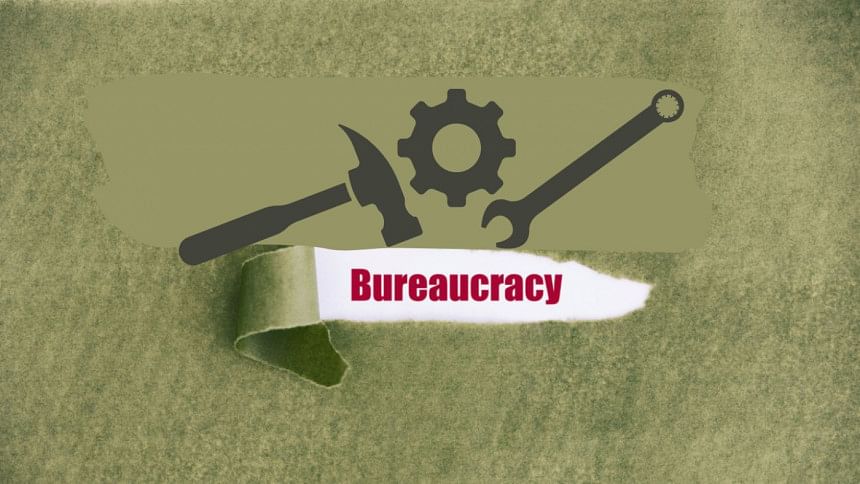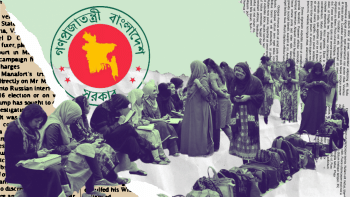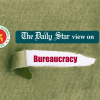Building a citizen-centric administration

The very next day the interim government assumed the state power hundreds of deprived people were seen approaching the government with their grievances. They complained of not getting promotion, placement, or even appointment because of their connections, no matter how distant, with the opposition political party, the Bangladesh Nationalist Party. This speaks volumes about the dysfunctional nature of the Bangladesh Civil Service, which needs urgent overhauling. The 2024 July uprising and the consequent departure of a fascist regime have created a new opportunity for Bangladesh to rebuild and restart afresh. It is crucial to utilise this opportunity to bring about a fundamental change in administration.
Since independence, 20 Committees and Commissions were formed for public administration reform while development partners conducted eight studies to support reforms. But most of them remained unimplemented. Consequently, even fifty-three years after independence, Bangladesh's public administration is still fragile, susceptible to political interference and incapable of serving the citizens as expected. These fundamental weaknesses have made the administration an overly politicised, centralised, unaccountable, inefficient, unethical, rent-seeking and non-transparent institution. Given this context, the interim government has undertaken a step to reform public administration.
Since the most wicked problem of administration now is unrestrained politicisation causing inefficiency and eroding institutional values and dignity, reform should focus on depoliticisation of administration. Systemic changes should be made towards building a "high-performing" and "citizen-centric administration" which would require legal, structural and procedural reforms as well as behavioural /mindset changes of the administrators.
First, the existing laws should be reviewed in terms of their discrepancies, irrelevance, gaps, and inadequacies to address the requirements for making the administration high-performing. Some laws curb the rights of government officials to justice while others increase the scope for corruption for them. For instance, under Clause 45 of the Government Service Act 2018 the government exercises absolute power to send a civil servant after 25 years of service to compulsory retirement without showing any cause. Section 197 of the Code of Criminal Procedure (CrPC) requires prior approval of the government for the prosecution or arrest of public servants. On the other hand, Article 77 of the constitution, requiring the appointment of an Ombudsman for redressal of grievances, complaints investigation and ensuring accountability of public servants, has never been implemented. Legal weaknesses of these kinds need to be addressed.
Secondly, the structure of administration requires some fundamental changes including: i) rightsizing government through setting up cluster ministries such as regulatory, infrastructure, development etc; ii) abolishing the divisional administration since it does not add any value to administrative efficiency; iii)rebuilding a pyramid-shaped administration and preventing it from being top-heavy; iv) reducing the number of cadres in civil service through the amalgamation of similar types of services; v) resolving inter cadre discrimination by abandoning the policy of offering supremacy to administrative cadre over the other cadres in terms of promotion, facilities and status, and creating equal opportunities for all cadres; vi) decentralization of administration through adequate delegation and devolution of authority to the front-line employees, field offices and local government.
Furthermore, procedural reform should include streamlining the systems of recruitment, promotion and transfer of civil servants to prevent political maneuvering. Following the mechanisms adopted by Southeast Asian countries including South Korea, Singapore and Malaysia, reforms can adopt a three-prong approach: meritocracy, technocracy, and performance-based management. Meritocracy ensures the selection of qualified, politically neutral personnel; technocracy makes the process transparent; and performance-based management ensures efficiency and productivity.
Although we have a merit-based recruitment system in civil service, the process has many weaknesses. First, the question pattern of the BCS recruitment examination does not reflect any commitment to recruit competent officials since it only promotes rote learning. To secure merit-based recruitment similar to that India, BCS recruitment examination needs to introduce analytical and case study-based questions to test the ability of candidates to apply knowledge in practical situations. Second, viva carries 200 marks, which creates a scope for exerting political interference in recruitment. Marks allocated for viva should be reduced from 200 to 100. Third, police clearance actually aims to confirm political identity of a candidate rather than assuring his/her involvement with any activity subversive to the state. This should be stopped.
Regarding promotions, which are mostly determined by political considerations rather than merit, no clear criteria for promotion currently exist. This creates confusion and potential favouritism. To overcome this situation, a well-articulated promotion policy needs to be framed. Revival of Senior Service Pool (SSP) should be given serious thought. Officials of different cadres (other than the technical ones) may wish to enter SSP through a special exam. Based on the performance of the exam, officials would get promotion.
Also, there is no standardised policy to guide the decisions regarding transfer/posting, leading to confusion and dissatisfactions among civil servants. Career Planning and Training Unit (CPTU) of the Ministry of Public Administration (MoPA) should preserve career planning and training data of all officials, based on which, decisions on posting and transfer should be made.
Besides, technocracy, meaning the digitisation of administration, would ensure transparency in its operation. Following the Malaysian approach, the Human Resource Management Information System (HRMIS) can be introduced. HRMIS automates the recruitment process, from job posting to candidate onboarding and thus offers transparency in human resource situations, job vacancies and posting across departments. Introduction of technology will also reduce the scope for political interventions.
Most modern civil services now operate with both individual and institution-based performance monitoring, evaluation and review systems, which is nonexistent in the Bangladesh Civil Service. At the agency level, each ministry may have a Key Result Area (KRA). In light of that employees can be assessed on the basis of performance linking rewards and promotions directly to measurable results achieved. A performance management unit responsible for setting agency targets, measuring progress and ensuring accountability, needs to be set up in each agency.
In addition to that, a change in the mindset and attitude of civil servants is required—from being self-serving to citizen-centric and professional officials. There should be a code of conduct and ethics that uphold professionalism, democratic values and institutional integrity. A designated body/unit can be established in each ministry to ensure the enforcement of code of conduct and ethics. The unit can offer one/two weeks or monthly non-residential courses for senior civil servants.
The current reform initiative may face various challenges. One of the biggest challenges might be the lack of political will of the elected government to implement the reforms. Lack of institutional capacity both technological and behavioural to implement the reform might be another challenge. To overcome these challenges, consensus of political parties must be ensured during the process of designing reforms and parties must be committed to incorporating the reform issues into their election manifestoes and to implement them. Finally, a high-powered administrative body has to be created to oversee/monitor the progress of implementing the reform.
Dr Ferdous Arfina Osman is professor at the Department of Public Administration of the University of Dhaka.
Views expressed in this article are the author's own.
Follow The Daily Star Opinion on Facebook for the latest opinions, commentaries and analyses by experts and professionals. To contribute your article or letter to The Daily Star Opinion, see our guidelines for submission.

 For all latest news, follow The Daily Star's Google News channel.
For all latest news, follow The Daily Star's Google News channel. 











Comments